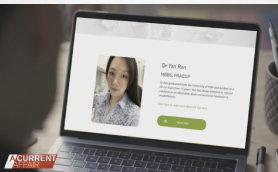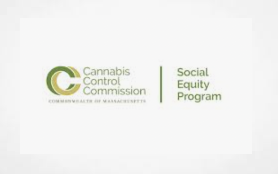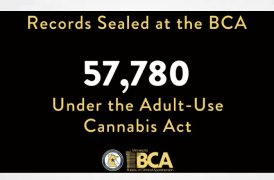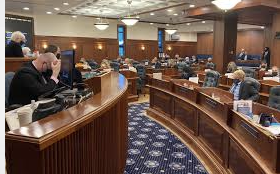When Vermont passed its cannabis legalization bill in 2020 it largely left licensing and regulatory details to rule making. The Vermont Cannabis Control Board (CCB) was created as a result and last month published recommendations for Vermont’s cannabis licensing scheme and social equity program. This blog post will explore Vermont’s efforts to create a craft friendly market that supports communities most negatively impacted by cannabis criminalization, and legacy growers and business owners.
Craft and Small Business Licensing
Vermont’s recreational market is striving to achieve the same craft-business focus that exists in the state’s medical marijuana program. Under the proposed recommendations recreational cultivation licenses would come in 6 tiers, with larger grows incurring higher fees. At the low-end tier 1 outdoor licenses will have less than 1,000 square feet of canopy and cost $1,000, and at the high-end tier 6 outdoor licenses will have less than 37,000 square feet of canopy and cost $37,500.
The CCB, in its effort to keep out corporate conglomeration, proposed significant fees on integrated license holders. Integrated license holders in the state’s existing medical marijuana program already pay an annual $50,000 fee. The CCB recommended this fee be applied to the recreational market and that the fee on integrated recreational licenses cost either $50,000-125,000.
Retail licenses under the CCB’s recommendations would come in two types. The first is a typical storefront retail business, and the second is a specialty retail nursery license for businesses exclusively selling seeds and clones to home cultivators or other licensees. Manufacturing licenses would also come in two tiers – the major difference is tier 2 licenses offer lower fees but prohibit licensees from using more dangerous solvents in their extractions.
Social Equity Licensing
Vermont is taking ambitious measures in establishing its social equity licensing to ensure communities most impacted by the War on Drugs are able to access the recreational market. Qualifying social equity businesses will benefit from reduced fees, financial assistance, and technical support. To qualify for a social equity license, an applicant business must meet at least one of the following criteria:
(A) At least 51 percent ownership and control by one or more individuals who have resided for at least five of the proceeding 10 years in a disproportionately impacted area.
(B) At least 51 percent ownership and control by one or more individuals who:
(i) Have been arrested for, convicted of, or adjudicated delinquent for any cannabis offense that is eligible for expungement; or
(ii) Are a member of an impacted family (defined as an individual who has a parent, legal guardian, spouse, or dependent who prior to July 1, 2021, was arrested or convicted for a cannabis offense that is eligible for expungement).
(C) For applicants with a minimum of 10 full-time employees, an applicant with at least 51 percent of current employees who:
(i) Currently reside in a disproportionally impacted area; or
(ii) Have been arrested for, convicted of, or adjudicated delinquent for any cannabis offense that is eligible for expungement or are a member of an impacted family.
The Vermont equity program has defined “disproportionately impacted area” as a census tract or geographic area that meets one of the following criteria: (A) a designated Vermont Opportunity Zone (which were established following passage of the Tax Cuts and Jobs Act of 2017); (B) the area has a poverty rate of at least 20 percent according to the latest federal decennial census; (C) 75 percent or more of the children in the area participate in the federal free lunch program; (D) at least 20 percent of households receive SNAP benefits; or (E) the area has disproportionate arrest, conviction, and incarceration rates relating to cannabis related offenses.
Social Equity Applicant Fee Reduction
While social equity licensing qualification in Vermont was created by statute, the CCB has recommended that a separate Social Equity Applicant Fee Reduction program be established through administrative rule making. “Social equity applicants” will include a cannabis license applicant that meets at least one of the following criteria:
(1.) Person of color or anyone who can demonstrate that they are from a community that has historically been disproportionately impacted by cannabis prohibition
(2.) Has personally been arrested, convicted or incarcerated for a cannabis-related offense or has a family member that has been arrested, convicted, or incarcerated for a cannabis-related offense
Applicants qualifying for the Social Equity Fee Reduction would have their license fee waived their first year. After that, social equity applicants would pay an increasing percentage of the full license fee. Year 2 social equity applicants will pay 25 percent of their fee, 50 percent year 3, 75 percent year 4, and starting year 5 social equity applicants will pay their full annual license fee.
Investment into Communities Most Impacted by Criminalization
The CCB recommendations includes creating a “Cannabis Business Development Fund” for providing direct financial support to social equity licensed business. As dictated by statute, the fund is to be used exclusively for providing low-interest loans and grants to social equity businesses, paying for outreach to attract social equity applicants, and assisting residents of disproportionately impacted areas with job training and technical assistance. The social equity subcommittee has determined that funding will include a base $500,000 allocation, supplemented with $50,000 fees collected from integrated license holders.
Vermont’s social equity framework will also establish a separate “Cannabis Disproportionately impacted Communities Fund.” 20 percent of cannabis tax revenue would go to the fund that would devote resources to education, legal aid, youth development, and violence prevention in disproportionally impacted areas. The CCB is also working on rules surrounding expungement to further repair communities most targeted by cannabis criminalization.
Potential Future Developments
The CCB is tasked with providing the Vermont legislature a report by January 15, 2022, to recommend regulatory requirements for cannabis license and discuss the viability of several other license types. Most noteworthy is the possibility of co-op cultivation licenses. Co-op formation allows agricultural producers to band together by sharing processing facilities, entering into joint marketing agreements, and even engaging in price fixing with other co-ops. Many of the largest agricultural producers in the United States are co-ops and both California and Massachusetts already created cannabis specific co-op licenses.
Conclusion
Vermont’s proposed social equity program is seeking to effectively welcome Black and brown owned businesses into the state cannabis market. It is estimated that only 2.7 percent of plant-touching cannabis businesses are Black owned and only 5.3 percent are Hispanic/Latino owned. Vermont’s efforts are repairing the impacts of the War on Drugs and ensuring the state’s cannabis industry is diverse enough to succeed in what will soon be a national and international cannabis market.
You can contact Brett Mulligan at info@gl-lg.com or 503-488-5424.

















